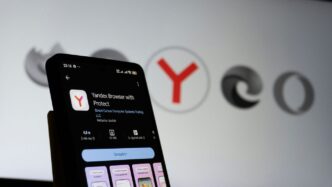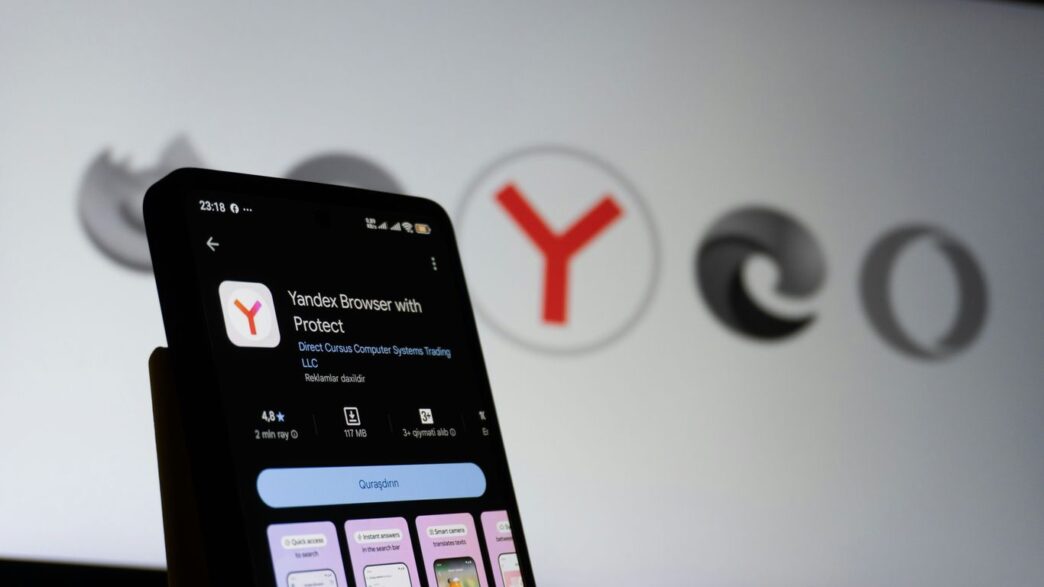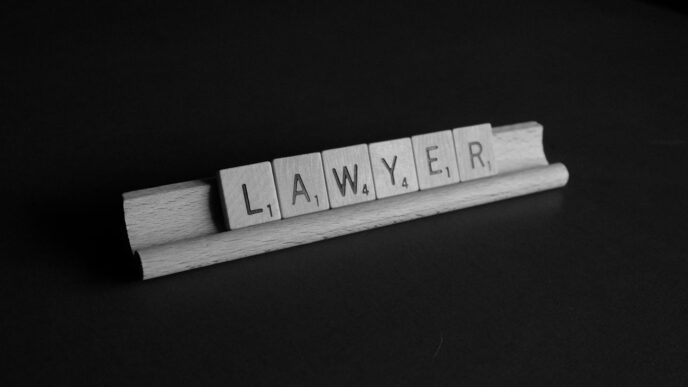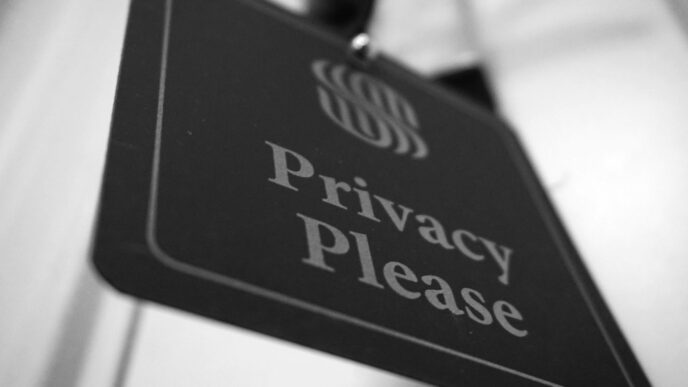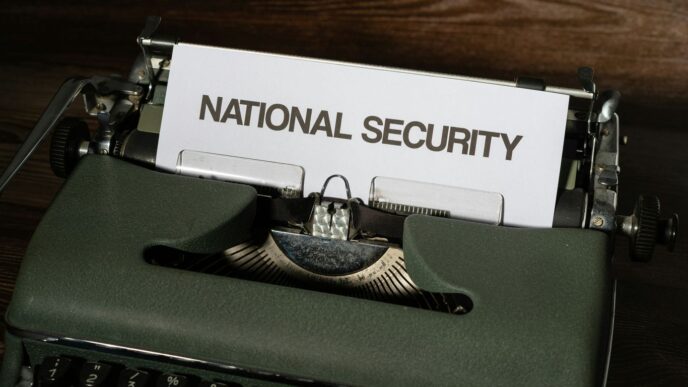So, the Justice Department is suing Uber. They’re saying the company has been discriminating against people with disabilities. This isn’t just a minor issue; it involves allegations of drivers refusing rides, not allowing service animals, and generally making things difficult for people who rely on these services. It’s a big deal, and it brings up some serious questions about how accessible our modern tech really is.
Key Takeaways
- The Justice Department has filed an Uber ADA lawsuit, accusing the company of widespread discrimination against passengers with disabilities.
- Allegations include routine denial of rides for people with service animals, wheelchair users, and improper surcharges.
- The lawsuit claims Uber violates Title III of the Americans with Disabilities Act, which prohibits discrimination in private transportation.
- Impacts on riders include significant delays, missed appointments, and being stranded.
- The DOJ is seeking monetary damages, policy changes, and driver training to halt these alleged discriminatory practices.
Justice Department Files Uber ADA Lawsuit

The U.S. Department of Justice has officially filed a lawsuit against Uber, accusing the ride-sharing giant of widespread discrimination against passengers with disabilities. This isn’t just a minor hiccup; it’s a serious legal challenge alleging that Uber has failed to uphold the Americans with Disabilities Act (ADA). The government is pushing for substantial financial penalties and a complete overhaul of Uber’s policies and practices.
Allegations of Widespread Discrimination Against Passengers with Disabilities
The core of the Justice Department’s complaint centers on a pattern of behavior that allegedly harms individuals with disabilities. According to the lawsuit, drivers working with Uber have routinely denied rides to people with service animals, like guide dogs, and have refused service to wheelchair users. There are also claims that Uber has unfairly charged cleaning fees for service animals and imposed cancellation fees on passengers who were unlawfully denied service in the first place. Some passengers have even reported being denied reasonable accommodations, such as the ability to sit in the front seat when needed due to a mobility impairment.
Seeking Significant Monetary Damages and Policy Changes
Beyond just stopping the alleged discriminatory practices, the Justice Department is seeking significant remedies. The lawsuit aims to secure monetary damages for individuals who have suffered due to these alleged violations. Furthermore, the government is asking the court to order Uber to implement mandatory changes to its policies and provide comprehensive training to its drivers and staff. This is all aimed at ensuring future compliance with the ADA and preventing further discrimination.
Uber Denies Discrimination Claims
Uber, for its part, has publicly stated that it disagrees with the Justice Department’s allegations. The company maintains its commitment to accessibility and improving the experience for all riders, including those with disabilities. They emphasize having a strict policy against service denials and aim to provide a safe and welcoming environment. However, the lawsuit suggests a significant gap between Uber’s stated policies and the actual experiences of many passengers with disabilities.
Core Allegations in the Uber ADA Lawsuit
Routine Ride Denials for Passengers with Service Animals
The lawsuit lays out some pretty specific examples of how people with disabilities have allegedly been treated unfairly by Uber. One big issue is drivers refusing rides to people who have service animals. Imagine trying to get a ride, and the driver sees your service dog and just says no. That’s what the Justice Department says has happened repeatedly. For instance, one person who is blind and uses a guide dog reportedly faced multiple ride cancellations just because of the dog. It’s like the system is set up to make things harder, not easier.
Discrimination Against Wheelchair Users
It’s not just about service animals, though. The complaint also talks about people who use wheelchairs. The Justice Department claims that drivers "routinely" deny rides to individuals who use wheelchairs. This means people who rely on these devices for mobility are left without a way to get around. One person mentioned in the suit, who uses a manual wheelchair, has apparently had similar experiences of being turned away. This kind of refusal can really mess up someone’s day, making them late for appointments or leaving them stranded.
Improper Surcharges and Policy Refusals
Beyond outright denials, the lawsuit also points to other unfair practices. The Justice Department alleges that Uber drivers have unfairly charged cleaning fees, even when the fee was related to a service animal. That just doesn’t seem right. Plus, there are claims of drivers canceling rides and then charging cancellation fees to passengers who were actually denied service because of their disability. The suit also mentions that Uber has refused to make reasonable changes to its policies, like letting passengers with mobility issues sit in the front seat if that’s what they need. These alleged actions paint a picture of a company that isn’t doing enough to make sure everyone gets a fair ride.
Violations of the Americans with Disabilities Act
Title III’s Prohibition on Private Transportation Discrimination
The Americans with Disabilities Act, or ADA, is a big deal when it comes to making sure everyone gets a fair shake. Specifically, Title III of the ADA is all about making sure private companies, including transportation services like Uber, don’t discriminate against people with disabilities. Basically, if you’re running a business that offers services to the public, you can’t treat people with disabilities any differently than you would anyone else. This means Uber drivers can’t just decide they don’t want to pick someone up because they have a disability.
Requirements for Service Animals and Mobility Devices
This law has some pretty clear rules about a couple of key things. First off, service animals. If someone has a service animal, like a guide dog for a blind person, that animal is allowed to go with them. Drivers can’t refuse a ride because of a service animal. It’s also about mobility devices. This includes things like wheelchairs, walkers, or canes. Uber is supposed to accommodate people who use these devices. That means drivers should be prepared to help stow a foldable wheelchair or make sure there’s enough space. The Justice Department is saying Uber isn’t doing enough to make sure drivers follow these rules.
Denial of Reasonable Accommodations, Such As Front Seat Access
Beyond just picking people up and letting their service animals ride along, the ADA also talks about reasonable accommodations. This can get a bit more specific. For example, someone with a mobility disability might need to sit in the front seat of the car because of how they get in and out, or because of their specific needs. If a driver refuses this simple request, that could be a violation. It’s about making small adjustments so that everyone can use the service. The lawsuit claims Uber drivers have refused these kinds of requests, leaving passengers in a tough spot.
Impact on Riders with Disabilities
When ride-sharing services fail to accommodate passengers with disabilities, the consequences can be pretty severe. It’s not just about a minor inconvenience; it’s about basic access to daily life. For many, these services are a lifeline, filling gaps where public transportation falls short or isn’t accessible.
Significant Delays and Missed Appointments
Imagine needing to get to a doctor’s appointment or a job interview. If your Uber is canceled at the last minute, or if drivers consistently refuse rides due to a service animal or wheelchair, you’re left in a tough spot. This can lead to:
- Missed medical appointments, potentially impacting health outcomes.
- Late arrivals or no-shows for work, risking employment.
- Inability to attend important social or family events.
- Significant stress and anxiety about reliable transportation.
Instances of Being Stranded
There have been reports of individuals with disabilities being left stranded after ride denials. This isn’t just about being late; it’s about safety and basic mobility. For example, a blind rider with a service dog might face multiple cancellations, leaving them without a way home. Similarly, a wheelchair user might be denied a ride, even after booking, and have no immediate alternative. This kind of experience can be incredibly isolating and frightening, especially in unfamiliar areas or at odd hours. The Justice Department’s lawsuit highlights several such cases, illustrating a pattern of disruption for disabled passengers.
Emotional and Physical Harm Caused by Discrimination
The cumulative effect of these experiences goes beyond just missed appointments. Constant denial of service and the feeling of being unwelcome or discriminated against can take a serious emotional toll. It can lead to feelings of frustration, anger, and a sense of being less than equal. Physically, being stranded or unable to access transportation can also cause harm, especially for those with mobility issues who may be unable to wait for extended periods or navigate difficult terrain. The allegations suggest that this isn’t just about policy; it’s about the real human cost of discriminatory practices.
Legal Ramifications and Sought Remedies
Court Order to Halt Discriminatory Practices
The Justice Department is asking the court to issue a clear order telling Uber to stop its alleged discriminatory practices against passengers with disabilities. This isn’t just about a slap on the wrist; it’s about forcing a change in how Uber operates. The goal is to make sure that drivers and the company itself can’t continue to deny rides or accommodations based on someone’s disability. Think of it as a legal mandate to play fair.
Mandatory Policy Modifications and Driver Training
Beyond just stopping bad behavior, the lawsuit wants Uber to actively change its ways. This means overhauling company policies that might be contributing to the problem. It also includes making sure drivers, who are the ones on the front lines, know exactly what the law requires. This could involve:
- Mandatory training sessions for all drivers on ADA compliance.
- Clearer guidelines within the Uber app about service animals and mobility devices.
- A review and update of Uber’s internal complaint and resolution process for disability-related issues.
The Justice Department is seeking significant monetary damages to compensate individuals who have been harmed by these alleged discriminatory actions. This isn’t just about fines; it’s about making amends to those who have faced difficulties getting around because of Uber’s practices. The amount sought is substantial, reflecting the widespread nature of the alleged discrimination. Additionally, the suit calls for civil penalties, which are essentially fines paid to the government to punish wrongdoing and deter future violations. It’s a way to show that discrimination has real consequences, not just for the individuals affected, but for the public interest as well.
Broader Implications of the Uber ADA Lawsuit

This whole situation with the Justice Department suing Uber really makes you think, doesn’t it? It highlights how relying too much on technology, like ride-sharing apps, can sometimes create new problems instead of solving old ones, especially for people with disabilities. It’s like we’re building all these cool new tools, but forgetting to make sure everyone can actually use them.
Challenges of Relying on Technology for Disability Inclusion
It turns out that just having an app doesn’t automatically mean equal access. For many folks with disabilities, services like Uber are supposed to fill in the gaps where public transport falls short. But when drivers refuse rides, or the app doesn’t properly account for things like service animals or the need for front-seat access, it leaves people stranded. This lawsuit points out that technology needs to be built with accessibility in mind from the start, not as an afterthought. We can’t just assume that a digital solution will automatically be an inclusive one. It’s a wake-up call for tech companies to really consider the diverse needs of their users.
The Role of Government Regulation in Ensuring Equal Access
This lawsuit is a pretty clear signal that government oversight is still super important. The ADA has been around for a while, but it seems like some companies still need a nudge – or a lawsuit – to follow the rules. The Department of Justice stepping in shows that there are consequences when companies don’t live up to their legal obligations to provide equal access. It’s about making sure that laws designed to protect people are actually being enforced, especially when it comes to something as basic as getting from point A to point B. You can find more information about the ADA on the government’s website.
Need for Centering Disabled People in Tech Development
Ultimately, this case is a reminder that when developing technology, especially services that impact daily life, the voices and needs of disabled people need to be front and center. It’s not enough to just have a policy saying you don’t discriminate; companies need to actively design their services to be usable by everyone. This means things like:
- Making sure app features accommodate different needs, like specifying vehicle types or driver training.
- Having clear and effective complaint processes that actually lead to action when discrimination occurs.
- Regularly consulting with disability advocacy groups to identify and fix potential barriers.
It’s about moving beyond just compliance and truly building technology that serves all members of society.
What’s Next?
This whole situation with Uber and the Justice Department really highlights a bigger issue. While ride-sharing apps can be super helpful for folks with disabilities, relying on them completely to fill gaps in transportation isn’t always the answer. The lawsuit itself is a big deal, and hopefully, it pushes Uber to make real changes. But it also serves as a reminder for all tech companies out there: you’ve got to think about accessibility from the start, not as an afterthought. And for us as a society, we need to keep pushing for better, more inclusive systems that work for everyone, not just a select few. It’s a long road, but these kinds of legal battles are a necessary step.
Frequently Asked Questions
What is the lawsuit about?
The U.S. government has sued Uber, claiming the company and its drivers discriminate against people with disabilities. This means they allegedly deny rides or treat disabled passengers unfairly, which goes against the Americans with Disabilities Act (ADA).
What specific complaints does the government have against Uber?
The government says Uber drivers often refuse to pick up people with service animals or those who use wheelchairs. They also claim Uber unfairly charges cleaning fees for service animals and cancellation fees when rides are wrongly denied. Sometimes, drivers reportedly refuse to let passengers with mobility issues sit in the front seat.
Why is this considered discrimination?
The Americans with Disabilities Act (ADA) is a law that says businesses open to the public, like Uber, cannot discriminate against people with disabilities. This includes making sure they can use transportation services just like anyone else, with reasonable help and without being turned away.
What are the consequences for passengers with disabilities?
When rides are denied, people with disabilities can face serious problems. They might be late for important appointments, get stranded, or experience a lot of stress and frustration because they can’t rely on the service they need.
What does the government want Uber to do?
The Justice Department is asking a court to order Uber to stop these unfair practices. They also want Uber to change its rules, train its drivers better on the ADA, and pay money to compensate passengers who were harmed by the discrimination. They are seeking $125 million.
Does Uber agree with these accusations?
No, Uber disagrees with the government’s claims. The company has stated that it is committed to making its services accessible and improving the experience for riders with disabilities, emphasizing a zero-tolerance policy for denied services.

